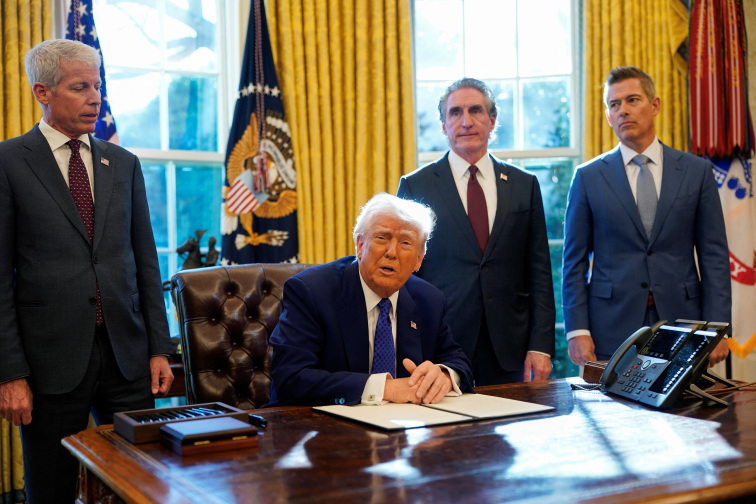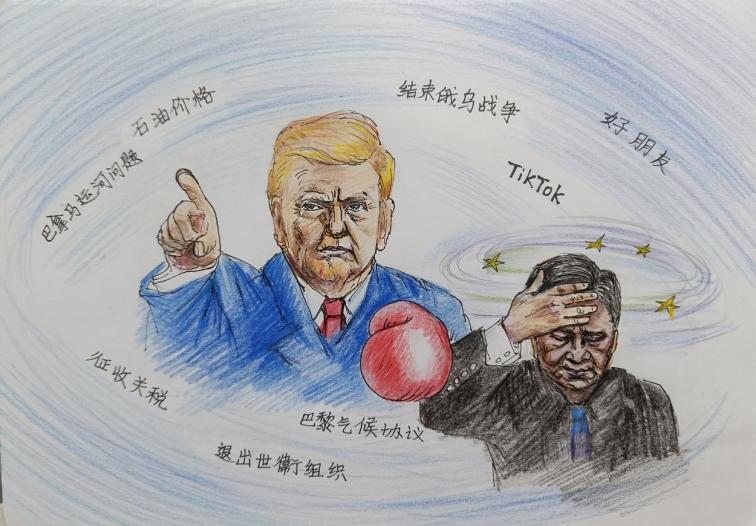The image is a profile photo of Alibaba founder Jack Ma. (Costfoto/Future Publishing via Getty Images)
[People News] According to Xinhua News, CCP leader Xi Jinping attended a private enterprise symposium in Beijing on the morning of February 17, where he delivered an important speech. The symposium was attended by Li Qiang, Ding Xuexiang, and chaired by Wang Huning.
Several media outlets reported that attendees included Huawei founder Ren Zhengfei, New Hope Group chairman Liu Yonghao, BYD chairman Wang Chuanfu, Alibaba founder Jack Ma, Tencent founder Pony Ma, CATL chairman Zeng Yuqun, Will Semiconductor chairman Yu Renrong, Xiaomi chairman Lei Jun, Chint Group chairman Nan Cunhui, Feihe Dairy chairman Leng Youbin, Utree Robotics founder Wang Xingxing, Qi An Xin chairman Qi Xiangdong, DeepSeek founder Liang Wenfeng, Meituan chairman Wang Xing, Sharing Group founder Peng Fan, GalaxySpace founder Xu Ming, Hengli Group chairman Chen Jianhua, Hengci Tech chairman Dong Qingfei, Transfar Group chairman Xu Guanju, and iFlytek chairman Liu Qingfeng, among at least 20 entrepreneurs.
Despite the significant contribution of private enterprises to China’s economy—40% of capital market value, over 50% of tax revenue, over 60% of GDP, over 70% of technological innovation, over 80% of urban employment, and over 90% of market entities—private enterprises remain a disposable tool for Zhongnanhai. They are used when needed and discarded afterward, never escaping the fate of being exploited and abandoned by the Party.
Interestingly, the Party’s media has yet to disclose the content of Xi Jinping’s important speech at the symposium, arousing widespread curiosity. Before the meeting, both internal and external Party propaganda raised expectations, hoping to stimulate the faltering market. However, the CCTV footage only showed Xi speaking without any audible content.
Speculation abounds. Some suggest that Xi apologized to Jack Ma but didn’t want the Party’s dignity compromised by broadcasting it. Others believe Xi lost his notes and spoke incoherently. Exiled Australian journalist Jiang Wangzheng claimed Xi improvised, focusing on demands rather than support, which led to a stock market slump. Jiang’s interpretation seems plausible, as Xi’s worldview revolves around Party control over everything—what’s yours is the Party’s, and being allowed to survive as a private business is a favor from the Party.
The Party’s media touted this symposium as the first in over six years with extremely high-level attendees, focused on technology companies and spanning three generations of entrepreneurs. Xi’s direct involvement signaled the Party’s determination to squeeze more resources from private enterprises.
Why now? It’s all due to U.S. President Trump’s actions. On February 4, the White House announced a 10% tariff hike, followed by global tariffs on steel and aluminum, and reciprocal tariffs soon after. As China’s economy falters and Zhongnanhai becomes uneasy, Trump’s tariff guns are aimed at China. Though still moderate, heavy fire could come after Trump deals with the Russia-Ukraine war. Wealthy figures like Jack Ma are summoned to act as cannon fodder—they won’t be allowed to flee.
Jack Ma’s turbulent relationship with Trump is well-known. During Trump’s first term, amidst rising tariffs and Beijing’s confusion, Jack Ma met with then-President-elect Trump in January 2017. Ma promised to help U.S. small businesses access Chinese consumers and create one million U.S. jobs—without informing Beijing’s top leadership. This pleased Trump but angered Xi Jinping, causing friction between Ma and Beijing. Eventually, Ma was punished for siding with Xi’s political rivals.
Now, with China’s economy teetering under Xi’s leadership and his 10 years of political regression undoing 40 years of reform, Xi’s power is weakened. As Trump resurfaces with another trade war, Xi is left with no options but to soften his stance. He even brought Jack Ma back from Japan through Li Qiang. Xi and Ma’s relationship now revolves around Trump.
In December 2018, Xi held a private enterprise symposium, declaring private businesses as “one of us.” This coincided with Trump’s rising tariffs, and even Xi’s envoy Liu He couldn’t negotiate a resolution. That same year, financial commentator Wu Xiaoping proposed the “Private Enterprises Should Exit” theory, suggesting that China’s private sector had fulfilled its role and should now step aside. This caused market panic, and Xi convened the symposium to stabilize sentiment, issuing the “28 Private Enterprise Policies” to court private businesses. Under Trump’s tariff pressure, the CCP sought private businesses’ help.
Throughout CCP history, private enterprises have been summoned during three major crises. After joining the WTO, the 2005 “Non-Public 36 Articles” aimed to integrate private firms into globalization. In May 2010, the “New Private 36 Articles” sought private firms’ help to stem the post-financial-crisis wave of closures. In November 2018, Xi declared private businesses as insiders to calm the storm caused by Trump’s tariffs.
Private businesses know best whether they are truly “one of us,” and so does the CCP. If they were, Xi would release Sun Dawu, lower VAT rates, arrest corrupt officials, lift bans on financial commentators, remove propagandistic speeches, and privatize state-owned enterprises.
(Originally published in People News)










News magazine bootstrap themes!
I like this themes, fast loading and look profesional
Thank you Carlos!
You're welcome!
Please support me with give positive rating!
Yes Sure!